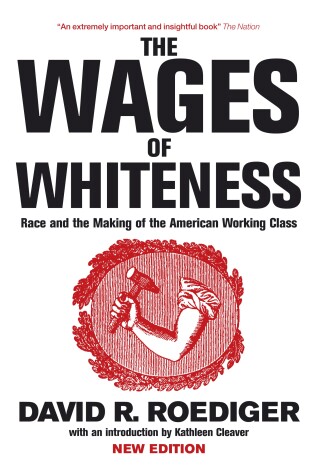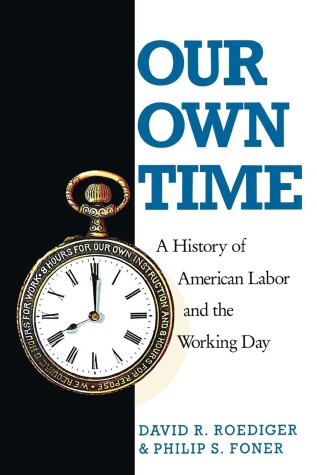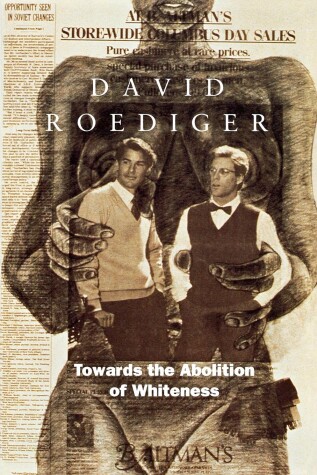Haymarket
3 total works
Combining classical Marxism, psychoanalysis, and the new labor history pioneered by E. P. Thompson and Herbert Gutman, David Roediger's widely acclaimed book provides an original study of the formative years of working-class racism in the United States. This, he argues, cannot be explained simply with reference to economic advantage; rather, white working-class racism is underpinned by a complex series of psychological and ideological mechanisms that reinforce racial stereotypes, and thus help to forge the identities of white workers in opposition to Blacks.
In a new preface, Roediger reflects on the reception, influence, and critical response to The Wages of Whiteness, while Kathleen Cleaver's insightful introduction hails the importance of a work that has become a classic.
In a new preface, Roediger reflects on the reception, influence, and critical response to The Wages of Whiteness, while Kathleen Cleaver's insightful introduction hails the importance of a work that has become a classic.
Our Own Time retells the story of American labor by focusing on the politics of time and the movements for a shorter working day. It argues that the length of the working day has been the central issue for the American labor movement during its most vigorous periods of activity, uniting workers along lines of craft, gender and ethnicity. The authors hold that the workweek is likely again to take on increased significance as workers face the choice between a society based on free time and one based on alienated work and unemployment.
Towards the Abolition of Whiteness collects David Roediger’s recent essays, many published here for the first time, and counts the costs of whiteness in the past and present of the US. It finds those costs insupportable. At a time when prevailing liberal wisdom argues for the downplaying of race in the hope of building coalitions dedicated to economic reform, Roediger wants to open, not close, debates on the privileges and miseries associated with being white. He closely examines the way in which white identities have historically prepared white Americans to accept the oppression of others, the emptiness of their own lives, and the impossibility of change.
Whether discussing popular culture, race and ethnicity, the evolution of such American keywords as gook, boss and redneck, the strikes of 1877 or the election of 1992, Roediger pushes at the boundaries between labor history and politics, as well as those between race and class. Alive to tension within what James Baldwin called “the lie of whiteness,” Roediger explores the record of dissent from white identity, especially in the cultural realm, and encourages the search for effective political challenges to whiteness.
Whether discussing popular culture, race and ethnicity, the evolution of such American keywords as gook, boss and redneck, the strikes of 1877 or the election of 1992, Roediger pushes at the boundaries between labor history and politics, as well as those between race and class. Alive to tension within what James Baldwin called “the lie of whiteness,” Roediger explores the record of dissent from white identity, especially in the cultural realm, and encourages the search for effective political challenges to whiteness.


